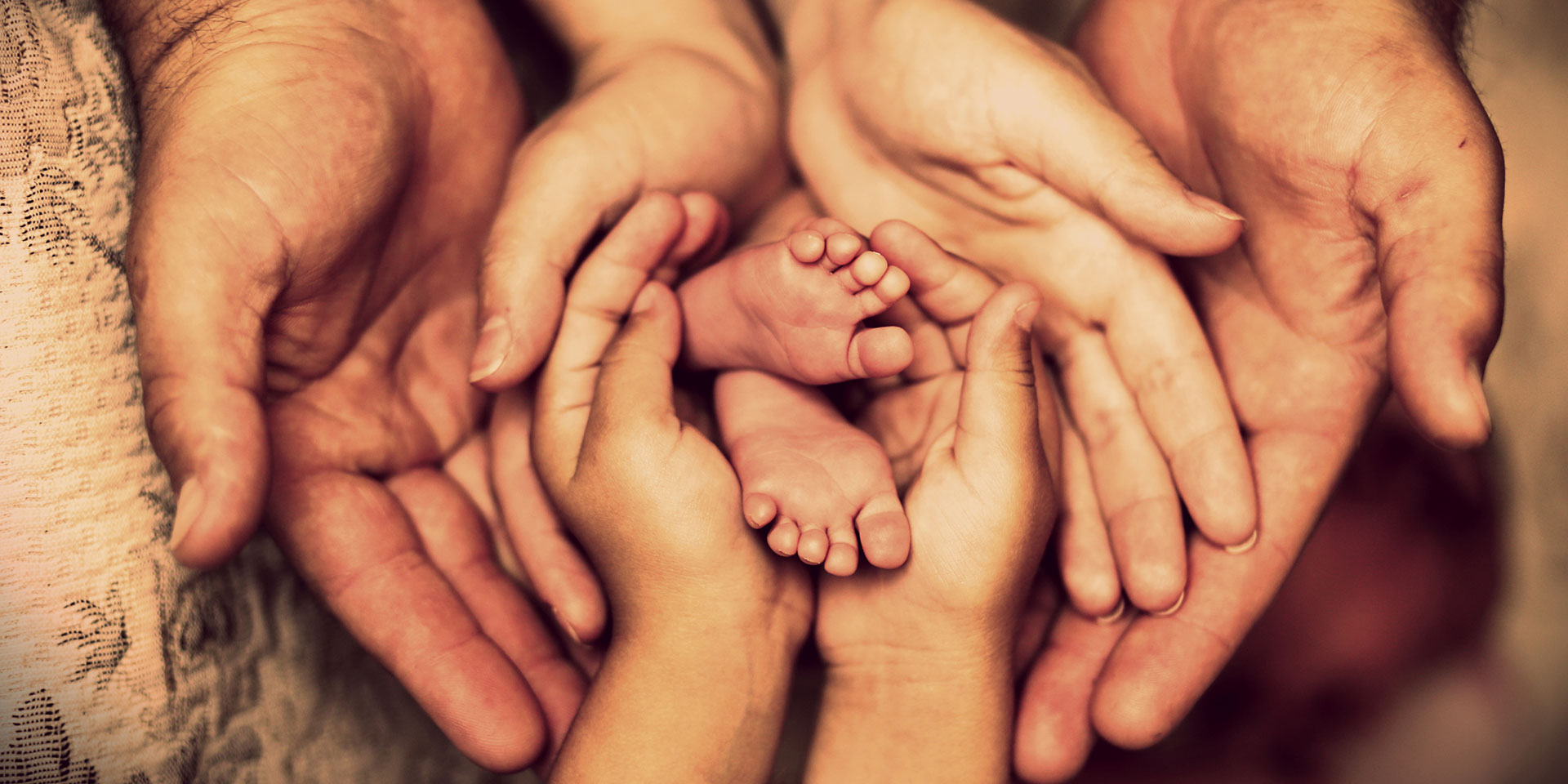“One of the acceptable idolatries among evangelical Christians is the idolatry of the family.” This statement, posted by Pastor Kevin DeYoung on his X (formerly known as Twitter) account, has gone viral on the social media platform, garnering over 1,600 likes, but also fierce criticism and requests for clarification.
While it’s not unusual for a topic as important as family to generate a great deal of interest, the attention the post has received has taken the author by surprise, and he has had to clarify the meaning of his statement in a text published by The Gospel Coalition.
DeYoung confessed that in just a few days he had become a controversial figure, viewed either an extremely courageous leader or simply a fraud, depending on the convictions of those who read his post.
The pastor has been accused of inventing false issues while ignoring the really pressing ones: the relaxation of sexual morality, the postponement of marriage to increasingly mature ages, and the manipulation of fertility to either limit or delay conception indefinitely.
DeYoung’s comment has been lumped in by his critics with those who undermine the essential role of the family “in a time when the breakdown of the traditional family is unprecedented,” resulting in out-of-wedlock births, separations and divorces, as well as abuse, as one X user, @RealTalkJohn, pointed out. A scan of the critical responses shows that this is the common denominator—frustration that the role of the family is being downplayed at a time when the Christian family is thought to be extremely fragile.
This belief goes in the direction of (or perhaps has been created or reinforced by) studies showing that Christian families are also very vulnerable to divorce, with Christians achieving the same high rates of family dissolution as non-Christians.
Before we take stock of the arguments DeYoung uses to support his claim, it’s useful to look at the latest research on Christian families to see how much myth and how much truth there is in the belief that they are rather unstable and, when they hold out, not exactly happy.
Christians do get divorced, too, but how often?
Glenn Stanton, director of the Christian organisation Focus on the Family, says the idea that Christians’ marital stability is not very robust is widespread, but argues that its popularity does not equate to its accuracy. Moreover, the idea is used to show that in everyday life the Christian faith does not fare so well, hitting the same dead-end as non-Christian relationships.
The icing on the cake is a study published in the American Journal of Sociology in February 2014, which shows that the divorce rate among religious conservatives exceeds the average divorce rate in society. Analysing a map of the United States to identify regions with high divorce rates, demographers Jennifer Glass of the University of Texas and Philip Levchak of the University of Iowa found that a strong predictor of high divorce rates is a high concentration of evangelical conservatives in a region.
The researchers found that the divorce rate rises in religiously conservative states (Alabama and Arkansas rank second and third in the number of divorces in the US, with about 13 divorces per 1,000 people per year) and is lower in more liberal states (6 and 7 divorces per 1,000 people in New Jersey and Massachusetts, respectively).
Commenting on the study’s conclusion that religious conservatives divorce at a higher rate than religious liberals and the religiously unaffiliated, Bradford Wilcox, director of the National Marriage Project, concedes that this is true to some extent, but that there are caveats to be considered that alter the understanding of the overall picture.
First, Wilcox points out that the study also finds high divorce rates in states with a high percentage of non-religious citizens, which may raise the question of whether religion itself is the problem. Second, divorce rates vary even among Protestants, as sociologist Charles Stokes points out—they remain high among nominal Protestants who rarely or never attend church, and low among Protestants who attend services regularly, showing that strong religious commitment makes a real difference.
A study by Wilcox, who is also a sociologist at the University of Virginia, shows that conservative Protestants who attend church regularly have a 35% lower risk of divorce than religiously unaffiliated Protestants, while nominal Protestants have a 20% increased risk of divorce compared to the same group. Similarly, the risk of divorce falls by 31% for practising Catholics and by 97% for observant Jews.
Researcher Shaunti Feldhahn, a Harvard graduate and author of several books on marriage, presented her findings on marital stability in today’s society in her book The Good News About Marriage: Debunking Discouraging Myths about Marriage and Divorce, based on an 8-year study she conducted. Feldhahn notes that the divorce rate has never reached 50%, as is often reported. In fact, these figures come from the estimates of researchers who saw an unprecedented rise in divorce in the 1970s and early 1980s, but in reality divorce never reached that threshold or even came close. According to Feldhahn’s research, around 20-25% of marriages break up, and while this is not a negligible percentage, it is “a whole lot better” than what is being peddled. The study also found that Christian marriages are 27 to 50 per cent less likely to break up, and that four out of five marriages are still happy five years after they started.
The authors of these studies are not suggesting that Christian families do not face real problems and challenges, but are simply trying to correct a distorted picture of chronic instability and dissatisfaction in marriages by showing that while there is still work to be done in building these relationships, they are not at the breaking point, as is often unjustly suggested.
Family remains at the heart of the American value system, according to a Pew Research Center survey, and is the primary source of satisfaction and fulfilment for most Americans, whether Christian or not.

Family trumps faith for Americans
Surprising or not, the results of the Pew Research Center survey, released in November 2018, show that only a minority of Americans, even religious ones, rank faith at the top of the list of things that fulfil them in life.
To find out what makes life meaningful, the researchers conducted two separate surveys. The first included an open-ended question that asked respondents to identify anything that gives their lives meaning and satisfaction. The second survey offered a series of closed-ended questions, asking people to choose from a list of 15 possible answers and to indicate which of the sources of fulfilment on the list ranked highest.
The surveys also gave very different results for the same source of fulfilment—for example, in the open-ended question only 5% mentioned pets, but in the closed-ended question 45% of Americans chose caring for pets as a fulfilling activity.
In both surveys, however, family was the most likely to be cited as an important source of fulfilment. In the open-ended question, respondents listed their sources of fulfilment starting with family (69%), followed by career (34%), money (23%), faith (20%), friends and hobbies (19% each), health (16%), home (13%) and education (11%).
In the closed-ended question, family remains at the top of the list (40%), with twice as many Americans citing it as a source of fulfilment as those who cite faith (20%).
Faith and spirituality are very important to evangelicals, with 43% citing them in the open-ended question and 65% citing religion as a source of meaning in the closed-ended question. At the other end of the spectrum, atheists are more likely to cite money (37%), hobbies (32%) and travel as sources of fulfilment.
Among Christians, evangelicals (43%) and historically black Protestants (32%) are more likely to cite spirituality as a source of fulfilment than mainline Protestants (18%) and Catholics (16%). Evangelicals and historically black Protestants were also the only groups to rank faith above family in their list of sources of fulfilment.
Commenting on the survey results, which show that only a minority of Christians still rate spirituality as the most important value, journalist Kate Shellnutt wonders whether Christians have become too focused on the family. In fact, there is “a recurring tension within the American church: how to champion biblical teachings on marriage, children, adoption, and family unity without letting family become a source of meaning and identity above Christ,” Shellnutt says.
It is only a step away from the controversy over the idolatry of the family that Pastor DeYoung unwittingly provoked.
A question of priorities: the gift or the Giver?
In his 2011 book, Counterfeit Gods: The Empty Promises of Money, Sex, and Power, and the Only Hope that Matters, Pastor Tim Keller captured the modus operandi of idolatry: “A good thing among many was turned into a supreme thing, so that its demands overrode all competing values.”
Picking up on this idea, Focus on the Family posted a message on X that expands on Pastor DeYoung’s idea of family as an idol: “[God] can’t be second. So, if family is first in our hearts, then family has become an idol [and] we begin to slowly but surely push God out of our life.”
Although he admits that he hadn’t given much thought before writing about the temptation for Christians to turn their families into idols, DeYoung says the idea is not new; he has preached on the subject on several occasions. The message he tries to convey each time is a simple one: “Commitment to family must not come before a commitment to God.”
DeYoung, who is expecting his eighth child, adds that the Bible teaches that family is good, essential even, but not the ultimate value.
In his explanation, the pastor recalls society’s two competing views of the family and illustrates them with popular American film productions. The first view is that of the family as a confining force that deprives the individual of the freedom to experiment and choose what really suits him or her—a view provocatively portrayed in the film Pleasantville, which depicts the town of the same name and the black-and-white outlook of its inhabitants.
The opposite view, promoted by the film The Family Man, places the family at the centre of an individual’s existence, as the source of all that is best and most desirable in life. Although this view is more common among Christians and is built on the foundation of some Christian teachings, DeYoung warns that neither view is supported by the Bible.
It’s hard to overstate the need to build healthy, happy families and the importance of Christian churches supporting the family, the pastor says. At the same time, Christian leaders can testify that the tendency to place the family on a pedestal that should belong to God is pervasive—Christians who don’t invite single members to the Thanksgiving table under the pretence of it being a holiday spent with the family, churches that suggest marriage is an obligatory stage of spiritual maturity, members who avoid ministry of any kind to devote themselves exclusively to the needs of the family and so on.
DeYoung concludes that family is one gift among many from God, and that the exercise of genuine gratitude avoids absolute attachment to the gift at the expense of the Giver. Moreover, this phenomenon can also be observed in churches that focus exclusively on families and children, leaving singles feeling incomplete and less welcome.

Connected by different DNA
Author Lore Ferguson Wilbert says that hospitality has become a habit in her family, with their home often hosting one or more single church members after church services or during holidays. Ferguson Wilbert explains that it wasn’t the lack of children that prompted her and her husband to turn their home into a refuge for the single, but rather the Gospel’s call to expand the boundaries of the family to include those with whom we don’t share the same DNA.
As noble as it is, Wilberts’ attitude is the exception rather than the rule in today’s churches. Single Christians feel “isolated, alone and lonely” in their churches, according to the Christian Connection website, which analysed more than 2,700 comments. More than a third of single respondents say they are treated differently to those who are married or in a relationship, 4 in 10 singles admit to feeling “inadequate or ignored” and 42% feel the church doesn’t quite know where to place them in its concerns.
Unmarried women said they were treated as a threat to the stability of couples, and single people of both sexes confessed to feeling outside the church rather than part of it. One single Christian said that married people have no idea of the problems faced by those without families, and another said that the isolation he felt in his church was so great that his doctor advised him to attend another church, maybe even one with a different religious affiliation.
The church needs to change, warns author David Pullinger, who analysed the data, pointing out that people who feel invisible tend to leave the church, even though they are very loyal to it. To keep single people, the church needs to become an attractive place for them, with activities that include them and connect them to the body of believers with families.
A 2015 Barna survey found that family was the most important factor in Americans’ identity (62%), while religious faith ranked third, being central to 38% of respondents. Commenting on these findings, Professor Joseph Hellerman notes that “natural family has usurped God and His family as the primary identity marker for most church-goers.”
Analysing a number of Jesus’ statements, some pro-family, some seemingly anti-family, Hellerman points out that discipleship implies belonging to two families, one natural and one of faith. Natural families remain the source of the most meaningful bonds we have, but the gospel requirement is to place them under the larger umbrella of God’s family, “not as distinct social entities competing for time and attention, but as members of the same family,” Hellerman points out.
In a hectic society, where time seems compressed despite all the technological advantages we have, it’s easy to focus all our attention and love on our families. It would be absurd for God not to understand our need to love those closest to us when He has planted that love in us. Gratitude can prevent us from turning to idolatry when we remember that “He first loved us” and that all the gifts we enjoy flow from that love.
And we should remember that He can—and does—love our family in a deeper way than we could ever love them. We are free to expand our horizons of concern beyond our family as long as we know that the One who prepared the gift knows how to protect it beyond all our human efforts and how to enhance its brilliance.
C.S. Lewis observes that God thinks our desires are not too strong, but rather too weak. We settle for the crumbs of a feast, “like an ignorant child who wants to go on making mud pies in a slum because he cannot imagine what is meant by the offer of a holiday at the sea.”
Every gift that claims the love intended for its Sender turns into a muddy mess, because only the Gift given to us in the manger of Bethlehem can preserve all the good that we have received here in the land of clay.
Carmen Lăiu is an editor of Signes of the Times Romania and ST Network.



















